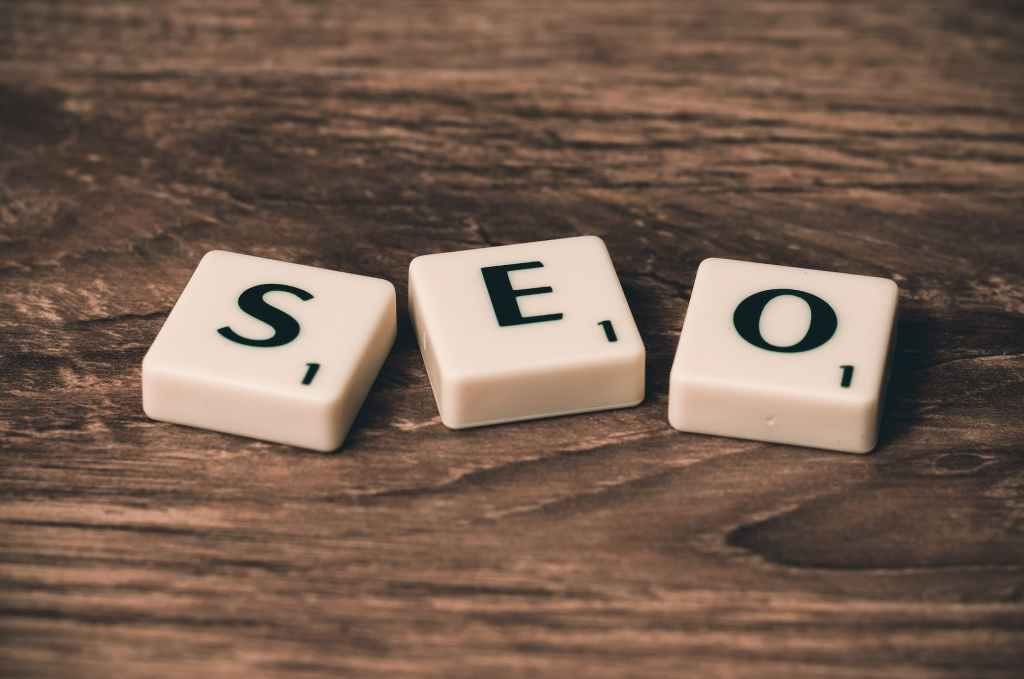What is Search Engine Optimization (SEO)?

Search Engine Optimization (SEO) is the practice of optimizing websites, web pages and content for the purposes of ranking higher in search engines, like Google. SEO practitioners optimize websites, web pages and content for the purposes of ranking higher in search engines, like Google. SEO is a set of practices designed to improve the appearance, positioning, and usefulness of multiple types of content in the organic search results. This content can include web pages, video media, images, local business listings, and other assets.
There are three main categories of SEO: on-page SEO, off-page SEO, and technical SEO. On-page SEO refers to optimizing individual web pages in order to rank higher and earn more relevant traffic in search engines. Off-page SEO refers to all the activities that take place outside of your website in order to improve your website’s visibility. Read this post for more tips about on page and off page opt. Technical SEO refers to the process of optimizing your website for the crawling and indexing phase of search engine optimization.
In order to understand how SEO works, it’s vital to have a basic understanding of how search engines work. Search engines use crawlers (also known as spiders or bots) to gather information across the internet to populate their big databases, called “indexes”. Crawlers begin from a known web page and then follow links from that page to other pages. The content of the discovered page, and the context of the links the crawler followed from one page to another, help search engines understand what the page is about and how it is relevant to all of the other pages within its index. Utilizing SEO best practices is essential for ensuring that the digital content you publish can be found and chosen by the public, increasing your website’s organic traffic.
Organic search results are the unpaid search results that appear on a search engine results page after a query. They are calculated strictly algorithmically, and not affected by advertiser payments. In contrast to paid search results, which are populated via an auction system, organic search results are based on relevance to the user’s search query, links and domain authority and other organic ranking factors 2.
How to Optimize My Page for Higher Positioning in SERP?
SERP stands for Search Engine Results Page. It is a webpage that displays the results of a user’s search query on a search engine, such as Google, Bing, or Yahoo. SERPs are made up of organic and paid search results, which are calculated algorithmically and not affected by advertiser payments. Organic search results are the unpaid search results that appear on a SERP after a query. They are based on relevance to the user’s search query, links and domain authority, and other organic ranking factors. Paid search results, on the other hand, are populated via an auction system and are marked as such.
SERPs may look different for each query, but they’re all made up of the same three building blocks: paid ads, organic results, and SERP features. Paid ads appear before, and sometimes also after, the organic results. Both types of results are virtually indistinguishable, the only real difference being that paid ads are marked as such. Paid ads work on a Pay-Per-Click (PPC) basis, meaning that advertisers bid on keywords and pay Google for each click. Organic search results are pages from Google’s index. Because there are often thousands of matching results, Google sorts them using hundreds of ranking factors. As a result, the most relevant and high-quality pages generally end up on the first page of the SERPs. SERP features are special features that appear on a SERP, such as featured snippets, knowledge panels, and local packs. These features are designed to provide users with quick answers to their queries.
Optimizing your website for higher positioning in SERP can be a complex process, but there are several strategies you can employ to improve your SERP ranking. Here are some tips:
- Optimize your website for mobile devices: Ensure your website is mobile-friendly and responsive to improve your SERP rankings. Mobile optimization is crucial as more users are accessing the internet through their smartphones and tablets. Make sure your website loads quickly, has a clean design, and provides a seamless user experience across all devices.
- Create high-quality and engaging content: Produce valuable and relevant content that resonates with your target audience. Focus on creating informative articles, blog posts, videos, and infographics that provide solutions to their problems. Use simple language and avoid jargon to make your content easily understandable. High-quality content is essential for improving SERP rankings. Search engines prioritize websites that offer valuable and engaging content to users. By creating content that satisfies user intent, you increase the chances of ranking higher in search engine results. it’s preferable to have some sort of content plan in hand also, check this post for more details about how to create a good one content plan.
- Optimize your website’s on-page elements: Optimize your website’s on-page elements, including title tags, meta descriptions, headers, and URLs. Use relevant keywords naturally throughout your content to help search engines understand the context of your web pages. Ensure your meta tags accurately describe the content on each page. On-page elements are the components of a web page that can be optimized to improve SERP rankings. These elements provide search engines with valuable information about the content and relevance of a page. By optimizing these elements, you increase the visibility of your website in search engine results. See these tips for more in-depth details about this.
- Build high-quality backlinks: Focus on acquiring high-quality backlinks from reputable websites in your industry. Backlinks are an important ranking factor for search engines, as they indicate the credibility and authority of your website. Engage in guest blogging, influencer outreach, and content promotion to attract valuable backlinks. Backlinks are important for improving SERP rankings because they act as a vote of confidence from other websites. Here are some tips about the process of backlink building.
- Keep your website updated: Regularly update your website with fresh and relevant content. This will help search engines recognize your website as an active and authoritative source of information. Additionally, ensure that your website is free of broken links and other technical issues that could negatively impact your SERP rankings.
Search Engine Algorithms and Math Behind My Rank
Search engines use complex algorithms to determine the ranking of websites in search results. While the exact algorithms used by search engines are not publicly disclosed, there are several known factors that can influence website ranking. Here are some of the factors that are believed to be important:
- Content quality: Search engines prioritize websites that offer high-quality, informative, and engaging content to users. Websites that provide valuable content are more likely to rank higher in search results.
- Keyword relevance: Search engines use keywords to understand the content of a web page. Websites that use relevant keywords in their content are more likely to rank higher in search results.
- Backlinks: Backlinks are links from other websites that point to your website. Search engines view backlinks as a vote of confidence in your website’s content. Websites with high-quality backlinks are more likely to rank higher in search results.
- Website structure: Search engines prioritize websites that are well-structured and easy to navigate. Websites that are easy to use and provide a good user experience are more likely to rank higher in search results.
- Mobile optimization: Search engines prioritize websites that are optimized for mobile devices. Websites that are mobile-friendly and responsive are more likely to rank higher in search results.
- Page speed: Search engines prioritize websites that load quickly. Websites that load quickly are more likely to rank higher in search results.
- Social signals: Social signals, such as likes, shares, and comments, can also influence website ranking. Websites that have a strong social media presence are more likely to rank higher in search results.
It’s important to note that search engine algorithms are constantly changing, and what works today may not work tomorrow. SEO is a complex and ongoing process that requires continuous effort and adaptation to stay ahead of the competition.
SEO Checklist for a Website or Page
There are several SEO checklists available online that can help you improve your website’s ranking in search engine results. Here are some of the most comprehensive and up-to-date checklists:
- Ahrefs SEO Checklist: This checklist covers a wide range of SEO tasks, including technical SEO, content optimization, and off-page SEO. It also includes a customizable Google Sheets template that you can use to track your progress.
- Stream Creative SEO Plan: This0-step SEO plan provides actionable steps for improving your website’s ranking in search results. It covers topics such as keyword research, content creation, and on-page optimization 2.
- SEMrush SEO Checklist: This checklist includes 41 best practices and tasks that you need to complete to improve your website’s organic traffic and boost your rankings. It covers topics such as keyword research, on-page optimization, and link building.
- Ahrefs SEO Best Practices: This article provides essential SEO best practices to help you improve your website’s performance in search engines. It covers topics such as keyword research, content creation, and link building.
- Moz SEO Checklist: This 25-step SEO checklist outlines the requirements for optimizing your website for higher search rankings. It covers topics such as keyword research, on-page optimization, and link building.
- Chrome lighthouse also compiles a list of SEO tips and other technical reviews of your page to be solved in order for your page to rank higher in the search engine’s index.
On page or off page SEO first?
Both on-page and off-page SEO are important for a website’s ranking on search engines. On-page SEO refers to optimizing the content and HTML source code of a webpage to rank higher on search engines. It includes factors such as keyword research, meta tags, internal linking, and more. On the other hand, off-page SEO refers to the efforts made outside of a website to improve its search engine rankings. This includes link building, social media marketing, and more.
While both are important, the focus on one or the other depends on the website’s needs. For instance, if a website has a lot of quality content but lacks backlinks, then off-page SEO would be more important. Conversely, if a website has a lot of backlinks but poor quality content, then on-page SEO would be more important.
In conclusion, both on-page and off-page SEO are equally important for a website’s ranking on search engines. The focus on one or the other depends on the website’s needs and goals.
Custom CMS Related SEO
Custom CMS like shopify, magento and wix use some custom system to publish contents and take certain steps and as limited as possible to improve your SEO rank on your page.
How to SEO your page ? Apparently you will stay away from any code related and technical steps and focus only on your contents (text & images) to improve your page SEO score.
For example, Shopify is a popular e-commerce platform that allows businesses to create and manage their online stores. Improving the search engine ranking of a Shopify store is crucial for attracting more organic traffic and increasing sales. Here are some resources that can help you improve your Shopify store’s SEO:
- Shopify Help Center: The Shopify Help Center provides a comprehensive guide on how to improve your store’s SEO. It covers topics such as editing robots.txt.liquid, adding keywords for SEO, optimizing your site structure for search engines, and more.
- Mailmodo’s Shopify SEO Guide: Mailmodo’s guide provides a complete overview of Shopify SEO, including various strategies and techniques to enhance your website’s structure, content, and performance to attract organic traffic from search engines like Google and Bing.
- Moz’s Shopify SEO Guide: Moz’s guide provides some of the most common Shopify SEO recommendations, such as removing duplicate URLs from internal linking architecture, creating blog content for keywords with informational intent, and compressing images using crush.pics.
- SEO Sherpa’s Shopify SEO Guide: SEO Sherpa’s guide provides a complete overview of optimizing your Shopify store for search engines. It covers everything from keyword research to on-page optimization and link building.
Another popular system is Magento, Magento is a popular e-commerce platform that allows businesses to create and manage their online stores. Improving the search engine ranking of a Magento store is crucial for attracting more organic traffic and increasing sales. Here are some resources that can help you improve your Magento store’s SEO:
- Conductor’s Magento SEO Guide: Conductor’s guide provides a comprehensive overview of Magento SEO, including various strategies and techniques to enhance your website’s structure, content, and performance to attract organic traffic from search engines like Google and Bing.
- DesignRush’s Magento SEO Guide: DesignRush’s guide shares top Magento SEO features you can utilize, best practices you can implement, and SEO extensions you can install to help you achieve the results you want 2.
- Elogic Commerce’s Magento 2 SEO Guide: Elogic Commerce’s guide provides a downloadable checklist and a complete overview of Magento 2 SEO, including various strategies and techniques to increase your website’s traffic.
- Moz’s Magento SEO Guide: Moz’s guide provides a comprehensive overview of optimizing Magento websites, including crawling and indexing, JavaScript rendering, and more.
Top Rated SEO Tools & Services
There are many SEO tools available that can help you improve your website’s ranking on search engines. Here are some of the top-rated SEO tools in 2024:
- SEMrush: SEMrush is an all-in-one SEO tool that provides keyword research, site audit, backlink analysis, and more. It offers a free trial and paid plans starting at $119.95 per month.
- Ahrefs: Ahrefs is a popular SEO tool that provides backlink analysis, keyword research, content research, and more. It offers a free trial and paid plans starting at $99 per month 2.
- Moz Pro: Moz Pro is an all-in-one SEO tool that provides keyword research, site audit, backlink analysis, and more. It offers a free trial and paid plans starting at $99 per month.
- Google Analytics: Google Analytics is a free tool that provides website traffic analysis, user behavior analysis, and more. It can help you track your website’s performance and identify areas for improvement.
- Google Search Console: Google Search Console is a free tool that provides website performance analysis, search analytics, and more. It can help you monitor your website’s search engine ranking and identify areas for improvement.
- Majestic: Majestic is a backlink analysis tool that provides detailed information about your website’s backlinks. It offers a free trial and paid plans starting at $49.99 per month.
- KWFinder: KWFinder is a keyword research tool that provides keyword suggestions, search volume, and more. It offers a free trial and paid plans starting at $29.90 per month.
- Screaming Frog: Screaming Frog is a website crawler that provides detailed website analysis, site audit, and more. It offers a free version and paid plans starting at £149 per year.
- Yoast SEO: Yoast SEO is a WordPress plugin that provides on-page optimization, content analysis, and more. It offers a free version and paid plans starting at €89 per year.
There are several frameworks related to SEO that can help you improve your website’s ranking on search engines. Here are some examples:
- Ahrefs’ Framework: Ahrefs’ SEO content strategy framework involves creating and maintaining high-quality, search-focused content about topics with business potential, search traffic potential, and ranking potential.
- E-A-T Framework: Google uses the E-A-T (expertise, authoritativeness, and trustworthiness) framework to assess the quality of content, pages, and sites. It favors high-quality content from reliable authors and trustworthy websites 2.
- JavaScript SEO Framework: JavaScript SEO is the discipline of technical SEO that’s focused on optimizing websites built with JavaScript for visibility by search engines. It’s primarily concerned with optimizing content injected via JavaScript for crawling, rendering, and indexing by search engines.
- The SEO Framework: The SEO Framework is a WordPress plugin that can intelligently generate critical SEO meta tags by reading your WordPress environment.
- Effective SEO Strategy: An effective SEO strategy involves creating, optimizing, and promoting content to improve its visibility in search engine results, attracting more organic traffic to a website. It involves a variety of techniques, such as keyword research, on-page optimization, technical SEO, and link building.
SEO Agencies or Companies, Good or Bad?
SEO companies and agencies can help businesses improve their website’s ranking on search engines, which can lead to increased traffic, sales, and revenue. Here are some benefits of working with an SEO company or agency:
- Expertise: SEO companies and agencies have the expertise and experience to help businesses improve their website’s ranking on search engines. They can provide valuable insights and recommendations on how to optimize a website for search engines.
- Time-saving: SEO companies and agencies can save businesses time by handling the technical aspects of SEO, such as keyword research, link building, and content optimization. This allows businesses to focus on other important aspects of their operations.
- Cost-effective: SEO companies and agencies can provide cost-effective solutions for businesses looking to improve their website’s ranking on search engines. They can help businesses avoid costly mistakes and provide a higher return on investment.
- Customized solutions: SEO companies and agencies can provide customized solutions tailored to a business’s specific needs and goals. They can help businesses identify their target audience, create a content strategy, and optimize their website for search engines.
- Measurable results: SEO companies and agencies can provide measurable results by tracking a website’s ranking on search engines, traffic, and conversions. This allows businesses to evaluate the effectiveness of their SEO strategy and make data-driven decisions.
Choosing the right SEO agency for your business can be a difficult task sometimes. Here are some tips to help you make an informed decision:
- Define your goals: Before choosing an SEO agency, it’s important to define your goals and expectations. This will help you find an agency that aligns with your business needs and objectives.
- Check their experience: Look for an SEO agency that has experience working with businesses similar to yours. Check their portfolio and case studies to see if they have achieved results for their clients.
- Read reviews: Check online reviews and testimonials from previous clients to get an idea of the agency’s reputation and quality of service.
- Ask for references: Ask the agency for references from previous clients. Contact these clients to get an idea of their experience working with the agency.
- Check their certifications: Look for an SEO agency that has certifications from reputable organizations such as Google, Bing, and HubSpot. This indicates that the agency has the necessary skills and knowledge to help you achieve your goals.
- Consider their communication: Choose an SEO agency that communicates effectively and regularly. They should be transparent about their strategies and provide regular updates on their progress.
- Compare pricing: Compare the pricing of different SEO agencies to find one that fits your budget. However, don’t choose an agency solely based on price. Look for an agency that provides value for money.
While SEO companies and agencies can help businesses improve their website’s ranking on search engines, there are some disadvantages to consider:
- Cost: SEO services can be expensive, especially for small businesses. The cost of SEO services can vary depending on the agency, the scope of work, and the level of expertise required.
- Time-consuming: SEO campaigns can take time to produce results. It can take several months to see a significant improvement in a website’s ranking on search engines. This can be frustrating for businesses that need quick results.
- Lack of control: Businesses may feel like they have less control over their SEO strategy when working with an agency. They may not have direct access to the data and analytics used by the agency, which can make it difficult to evaluate the effectiveness of the strategy.
- Risk of penalties: SEO agencies may use black hat techniques that violate search engine guidelines, which can result in penalties or even a ban from search engines. This can be detrimental to a business’s online presence.
- Communication issues: Communication issues can arise when working with an SEO agency. Businesses may have difficulty communicating their needs and goals to the agency, which can lead to misunderstandings and ineffective strategies.
In conclusion, while SEO companies and agencies can provide valuable expertise and solutions, businesses should be aware of the potential disadvantages, such as cost, time-consuming campaigns, lack of control, risk of penalties, and communication issues.
More Resources
- What Is SEO? Search Engine Optimization Best Practices – Moz
- What is SEO? Search Engine Optimization In Plain English
- Search engine optimization – Wikipedia
- A Guide to Google Search Ranking Systems
- 🥇 How Does Google Rank Websites? | Ranking Factors & Tips
- What are SERPs? Search Engine Results Pages Explained
- What Is SERP (Search Engine Results Pages)? | Coursera
- Shopify Help Center | Improving SEO
- Shopify Seo 101: A Complete Guide For Beginners
- Magento SEO: The Ultimate Guide full of Best Practices [2023]
- Magento SEO Guide: Top SEO Features + Best Practices in 2023-2024 | DesignRush
- Best Magento 2 SEO Guide: Setting, Optimization, Tips for 2023 | Elogic





Leave a comment